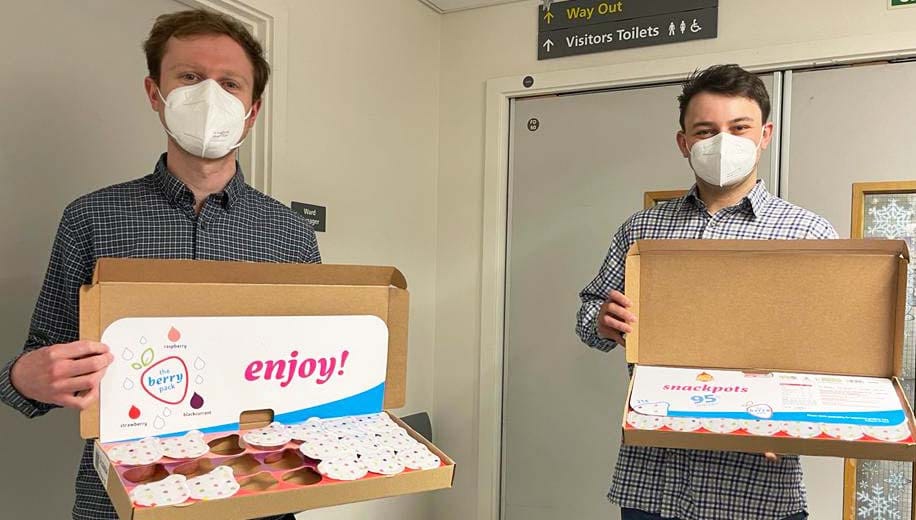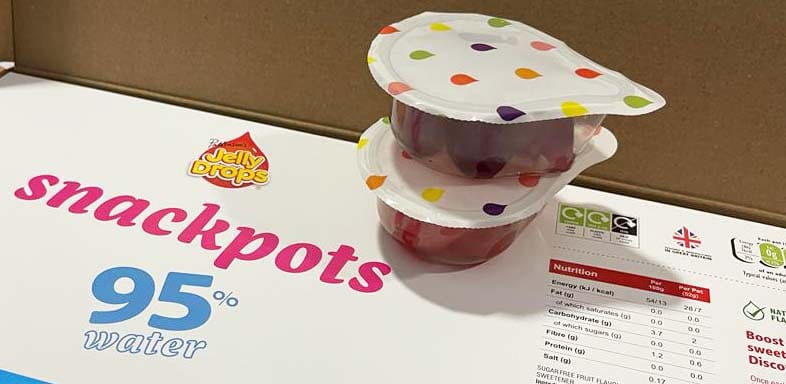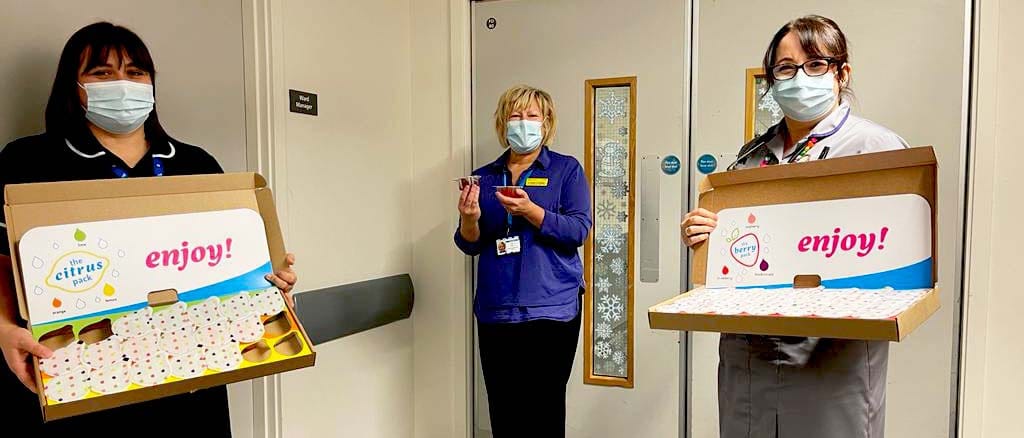
Patients at risk from dehydration in hospital are finding something new on the menu this December.
‘Jelly drops’ are refreshing sweets invented by Lewis Hornby after his grandmother, who suffered from dementia, was hospitalised with dehydration.
The drops contain 90 percent water, come in different flavours, and are sugar-free, low-calorie and gluten-free, making them suitable for diabetics and coeliac patients. They are being offered to patients as part of an innovative pilot programme at UHNM.
Jelly Drops are supported by the Alzheimer’s Society and ward 225 and FEAU (female elderly care unit) at UHNM have now agreed to pilot their usage.

An original full box of Jelly Drops is the same as drinking three cups of fluids, which is more than many older adults currently consume in a day.
They are also ergonomically designed so as to make the drops easy to pick up for those who struggle with dexterity.
Lewis Hornby, founder of Jelly Drops, said: “People with dementia may struggle with dehydration.
They may not feel thirsty and struggle with cups. Many people find finger food much more intuitive, especially sweets. Jelly drops are designed for anyone to enjoy but particularly with people with dementia in mind.
Hopefully, as well as helping with dehydration they will also help support social interaction for caregivers and between family members.
“The initial product which we launched last summer has been really great – so many people are enjoying it.
The insights we gained through working with Royal Stoke have really helped us to develop it since and many of those insights we have now put into our new product which we are excited to trial in a couple of weeks.”
Linda Collier, deputy associate chief nurse at UHNM, said: “We are very excited about using Jelly Drops.
“Dehydration and subsequent urine infections are a common challenge for older people, especially those with dementia.
They can contribute to increased length of stay within a hospital setting, premature death and reduced quality of life due to admissions into hospitals.
Memory problems mean someone with dementia can easily forget to drink enough, consequently suffering from dehydration. Despite encouragement, water is not always seen as appetising.
“Jelly Drops can be used by everyone and not just by people living with Alzheimer’s and memory problems, but by those with autism, learning difficulties, Parkinson’s disease and motor neurone disease.
“Jelly Drops have already successfully been utilised within a care home setting to prevent dehydration, so we are hopeful of seeing really good results here.”
The pilot programme at UHNM is recommencing this December 2021 after suspension during the pandemic.





